Health
UNICEF Partners with Journalists on Routine Immunization Amid Mixed Community Reactions in Gombe State
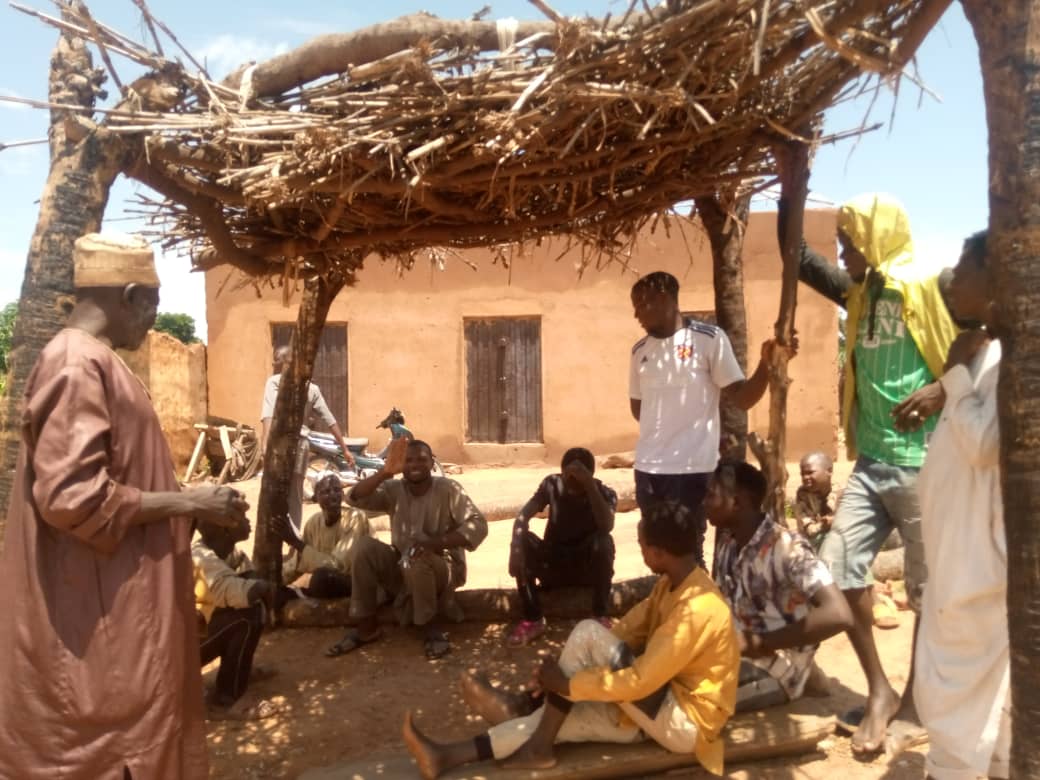
By Muhammad Jamil Abubakar
Immunization efforts in Northern Nigeria have long been fraught with challenges, making it a critical focus of both national and international health campaigns. Despite significant progress, cultural misconceptions, political obstacles, and infrastructural limitations continue to hinder widespread vaccine coverage, particularly in rural regions like Gombe State.
Northern Nigeria has been one of the last frontiers in the global fight to eradicate polio, with cases persisting until recent years. The region’s struggle with polio eradication was exacerbated by a complex set of factors: cultural and religious misconceptions about vaccines, political instability, security challenges, inadequate health infrastructure, and low levels of education regarding the benefits of immunization.
In Gombe State, the ongoing immunization campaign has generated a range of responses from different sectors of society. Local communities, health officials, and leaders have expressed varying perspectives on the successes and challenges faced in administering vaccines.
During a recent visit by Radio Nigeria to communities in Gombe and Kwami Local Government Areas (LGAs), residents shared their experiences and concerns regarding routine immunization.
Cultural Hesitancy and Mistrust
In Shango Bolawa, Kwami LGA, Ibrahim Ahmad Ibrahim and Sam’an Shehu, both middle-aged men, voiced skepticism about vaccines. They cited long-standing cultural and family traditions as reasons for their hesitance. Despite ongoing awareness campaigns, mistrust remains prevalent in some areas. These men expressed lingering doubts, believing that the immunization campaigns are part of a Western agenda aimed at controlling Nigeria’s population, particularly in the North. Such misconceptions continue to fuel resistance to vaccination in many rural communities.
Access Challenges
Meanwhile, in Anguwan Wuro Liman, Gombe LGA, Abdul Salam Ibrahim spoke about a different set of challenges—access to healthcare facilities. He lamented the absence of a nearby primary health care center, stating that health officials have never visited his community to administer vaccines. “If vaccines were readily available in our community, I would gladly immunize my children,” he said, highlighting the need for improved healthcare infrastructure to ensure that immunization services reach all areas, especially those that have been historically neglected.
Economic Pressures
Yunusa Adamu of the Bada Koshi community in Kwami LGA offered yet another perspective. He attributed the low compliance with routine immunization to the economic hardships facing rural families. According to Adamu, many parents are forced to take their children to the farm to assist with cultivation, making it difficult for them to keep up with immunization schedules. This points to the broader socio-economic barriers that complicate efforts to increase vaccination coverage.
Media’s Role in Bridging Gaps
Recognizing the need to address these diverse challenges, UNICEF’s Bauchi Field Office recently organized a workshop for journalists from Adamawa, Bauchi, Gombe, Jos, and Taraba states. The workshop aimed to highlight the critical role of the media in integrated vaccination campaigns.
UNICEF’s Social Behavior Change Specialist, George Eki, emphasized the importance of media involvement in dispelling the misconceptions surrounding vaccines. He urged journalists to use their platforms to educate the public on the benefits of immunization and to counteract false narratives that contribute to vaccine hesitancy.
UNICEF has been working in partnership with the government and other stakeholders to increase routine immunization coverage for children under five years old. Their efforts focus on strengthening healthcare infrastructure to improve vaccine delivery, educating communities about the life-saving benefits of immunization, and supporting the government in eradicating vaccine-preventable diseases such as polio, measles, and diphtheria.
A Long Road Ahead
While there have been notable successes in the fight against vaccine-preventable diseases in Northern Nigeria, the reactions from communities in Gombe and Kwami LGAs demonstrate the complexity of public health efforts in the region. Vaccine hesitancy, fueled by cultural and religious beliefs, along with inadequate healthcare access and economic pressures, continue to impede progress. However, initiatives like the UNICEF-journalist partnership offer hope in overcoming these barriers through community education and engagement.
As public health campaigns continue, the active involvement of local leaders, journalists, and health officials will be critical in ensuring that every child receives life-saving vaccines, no matter their location or background.
Health
MAMII Coordinator Calls for Joint Action as Gombe, Federal Government Tackle Maternal Mortality
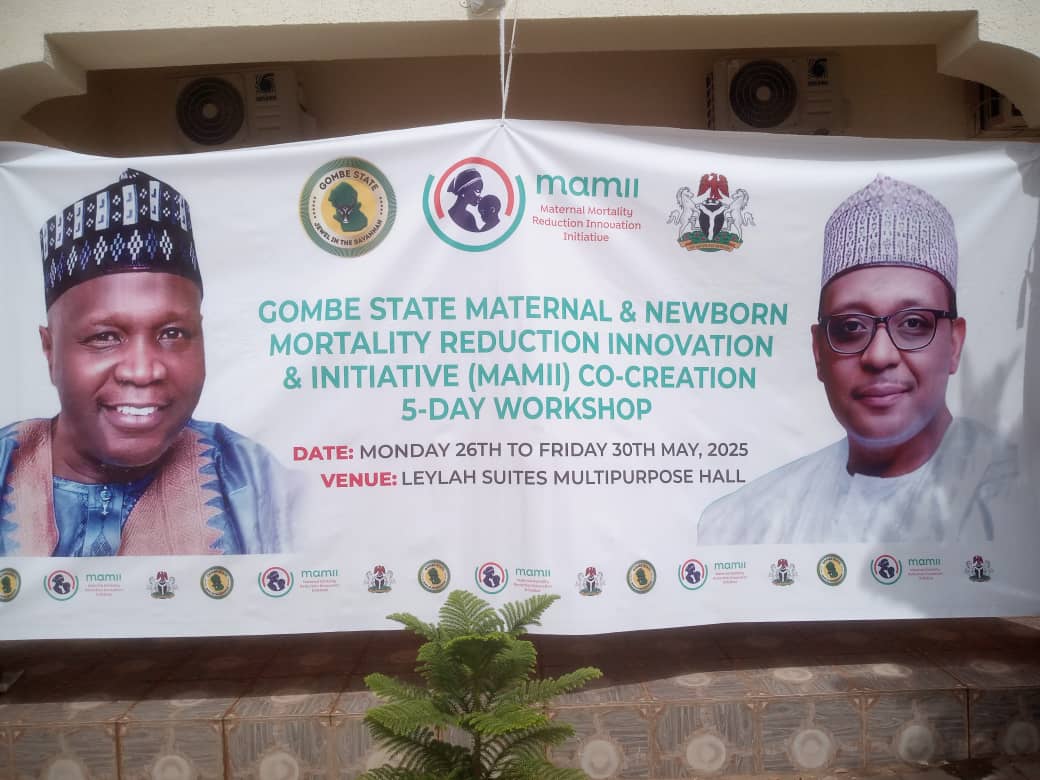
By Muhammad Jamil Abubakar
The National Coordinator of the Maternal and Newborn Mortality Reduction Innovation and Initiatives (MAMII), Dr. Dayo Adeyanju, has called for a united front across all levels of government and communities to curb maternal and neonatal mortality in Nigeria. He made this appeal during a five-day co-creation workshop held in Gombe State.
Dr. Adeyanju emphasized the importance of a sector-wide approach involving federal, state, and local governments, as well as development partners and community stakeholders. He advocated for improved girl-child education, increased access to skilled birth attendants, and the deployment of community-based health workers to ensure safe pregnancies and deliveries.
He noted that MAMII has identified 172 high-burden local government areas across Nigeria and aims to reduce maternal mortality by 30 percent within two years through coordinated interventions, digital monitoring platforms, and health worker incentives.
The Gombe State Commissioner for Health, Dr. Habu Dahiru, described the MAMII workshop as a collaborative effort between the federal and state governments to align and coordinate maternal health strategies. He reaffirmed Gombe’s commitment to drastically lowering maternal and neonatal death rates, which remain particularly high in the North-East region.
According to Dr. Dahiru, the initiative will focus on strengthening antenatal care and delivery services, involving community structures like the Mama2Mama initiative and Chief Agents, who will identify pregnant women and ensure they access healthcare facilities for safe delivery.
He also disclosed that eight local government areas in Gombe have been identified as vulnerable and will receive targeted interventions. The state government, he said, is addressing human resource challenges by increasing the number of midwives, Chief Agents, and health supplies to improve maternal health outcomes.
The MAMII project, introduced under the leadership of President Bola Ahmed Tinubu and Coordinating Minister of Health Professor Muhammad Ali Pate, represents a unified national effort to tackle maternal and neonatal mortality.
Participants at the workshop included representatives from federal and state health agencies, the National Health Insurance Authority, GoHealth, the Drug Management Agency, religious and community leaders, and the media.
In a show of support, Hajia Zainab Muhammad, a representative of the Clinton Health Initiative, pledged continued collaboration with Gombe State to promote maternal health, safe pregnancy, and child spacing services.
Health
Success Story: Resident Doctors Conduct Free Surgeries and Medical Outreach in Gombe and Yamaltu-Deba
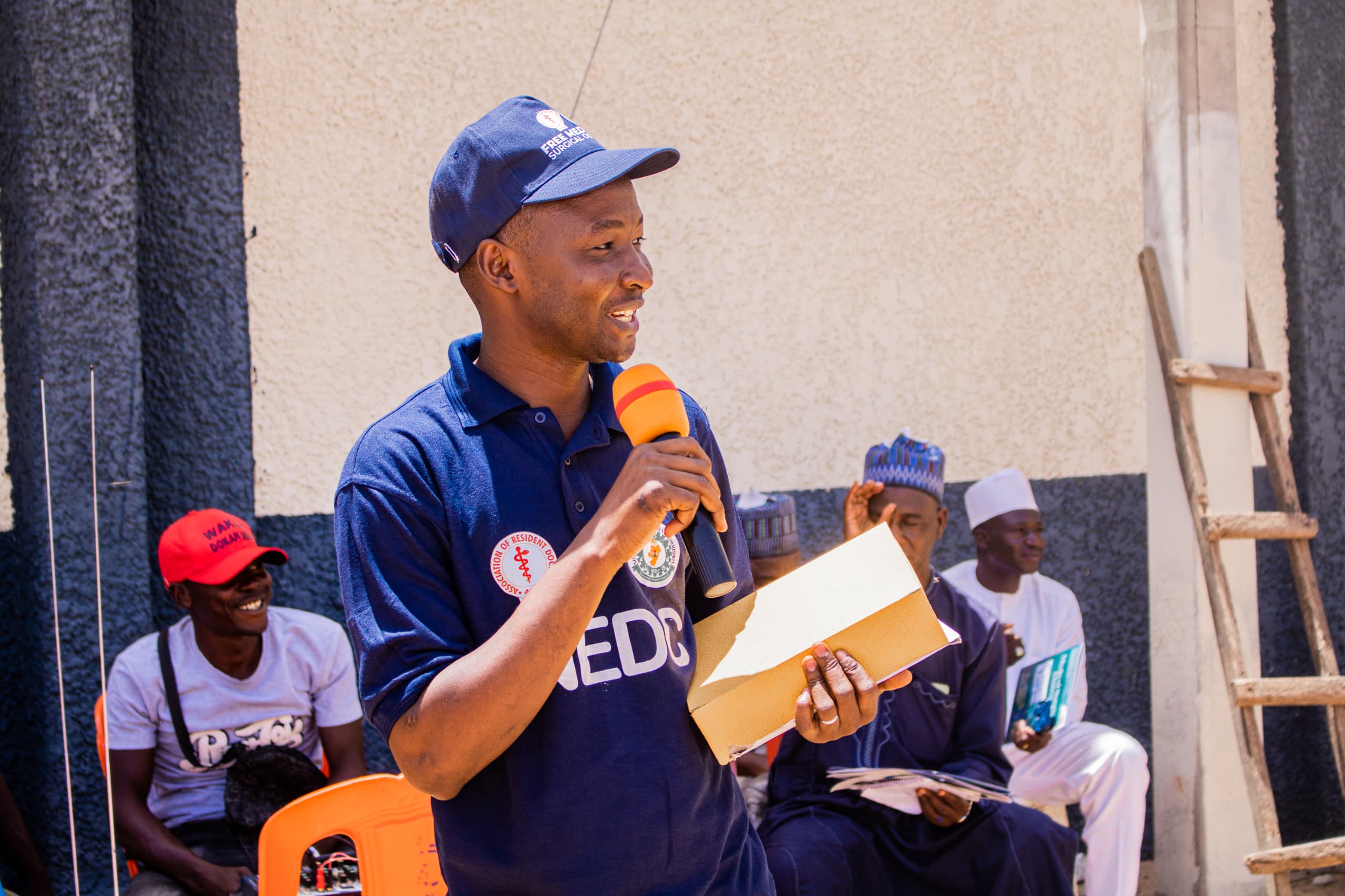
By Our Correspondent
The Association of Resident Doctors (ARD), Federal Teaching Hospital (FTH) Gombe, in collaboration with the North East Development Commission (NEDC), has successfully carried out a two-day free medical and surgical outreach in Gombe and Yamaltu-Deba Local Government Areas. The exercise, held on May 9th and 10th, 2025, provided much-needed healthcare services to underserved communities, yielding impactful results.
The outreach brought together a multidisciplinary team of healthcare professionals and was witnessed by traditional leaders, government officials, and community stakeholders. The primary goal was to provide quality medical care to the poor and vulnerable populations who are often unable to access or afford treatment.
According to the President of ARD-FTH Gombe, Dr. Ibrahim Salihu, the outreach was fully funded by the North East Development Commission (NEDC) and aimed at alleviating the burden of healthcare costs on the less privileged. A total of 1,300 patients were attended to during the outreach across two major locations: Deba General Hospital and Zainab Bulkachuwa Women and Children Hospital, Gombe.
“We are excited with the turnout and the impact this has made. Out of the 1,300 patients we treated, over 50 underwent various surgeries, which is highly commendable,” Dr. Salihu said.
The comprehensive services offered during the outreach included:
Free consultations and general medical checkups
Distribution of free medications to over 1,300 patients
Over 100 obstetric scans conducted for women
Free eye consultations and treatment for over 150 individuals
Distribution of 60 free medicated eyeglasses
Over 70 dental procedures carried out
More than 30 ear surgeries successfully performed in Deba
Free cervical screening for women
Deworming treatment for children
Laboratory investigations and follow-up care
Provision of food and shelter to students of the Gombe Special School
Dr. Salihu emphasized the importance of such interventions, noting that many residents cannot afford basic healthcare due to the current economic challenges. He called on wealthy individuals, politicians, and the Gombe State Government to support and invest in similar medical outreaches to expand the reach of healthcare services across the state.
He also expressed deep appreciation to his fellow resident doctors at the Federal Teaching Hospital Gombe for their unwavering sacrifice, hard work, and dedication throughout the exercise, noting that their commitment was critical to the success of the outreach.
The outreach program also included visits and donations to the Gombe Special School, where food items and other essential supplies were provided to support the students.
In recognition of the support received, the Association of Resident Doctors extended its gratitude to several dignitaries who played key roles during the opening and closing ceremonies of the program. These include:
The Managing Director of NEDC, Mohammed Goni Alkali, represented by the Acting Gombe State Coordinator, Arch. Usman Mohammed;
The Chief Medical Director of FTH Gombe, Dr. Yusuf Abdullahi, represented by Chief Consultant Orthopaedic Surgeon, Dr. Bukar Yakubu;
Gombe State Commissioner for Health and Human Services, Dr. Habu Dahiru;
The Emir of Deba, His Royal Highness Alhaji (QS) Ahmed Usman;
Chairman of the Nigerian Medical Association (NMA), Gombe State chapter, Dr. Adamu Girbo.
This successful medical outreach once again highlights the vital role of collaboration between health professionals and development agencies in delivering lifesaving care to the grassroots.
Health
Health Begins With Clean Hands Gombe Joins Global Campaign
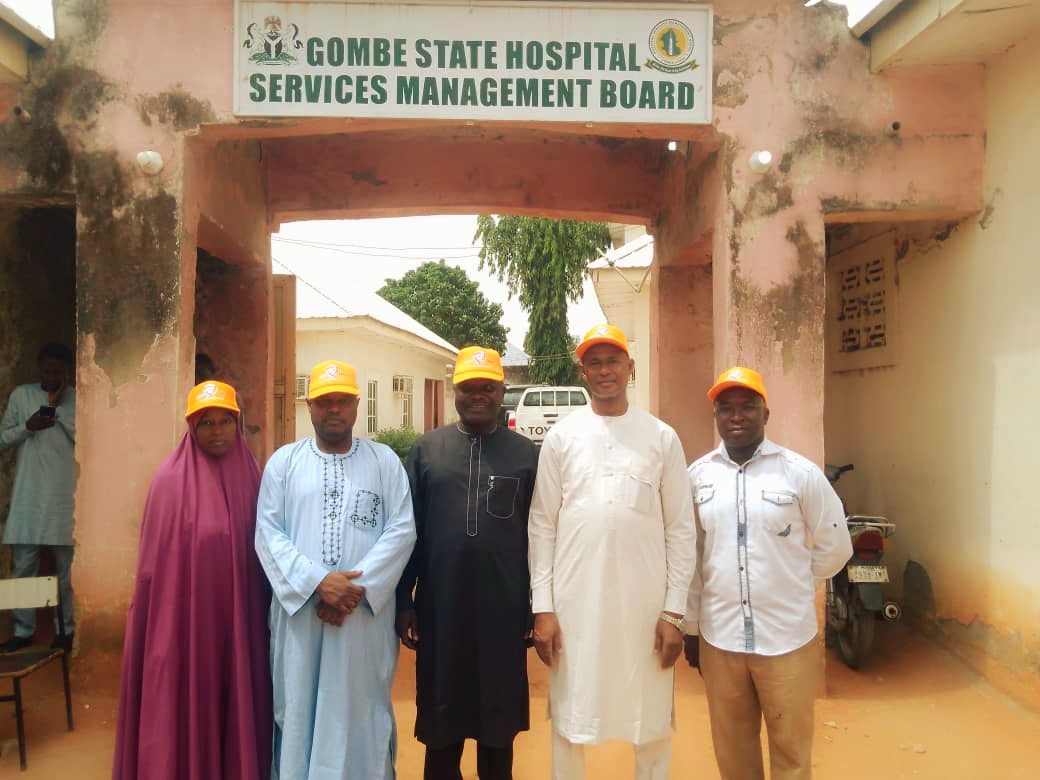
By Our Correspondent
Health experts in Gombe State have reiterated the critical role of hand hygiene in preventing infections, especially in healthcare settings, as the world marks the 2025 World Hand Hygiene Day under the theme: “It might be gloves, it’s always hand hygiene.”
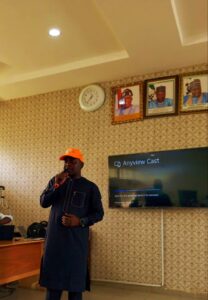
Leading the campaign the Chief Medical Director of the Federal Medical Centre (FMC) Kumo, Dr. Muazu Shuaibu Ishaq, called on residents to consistently wash their hands with soap under running water. He emphasized that hand hygiene remains one of the most effective ways to reduce the spread of diseases.
“Washing hands properly and frequently is essential, not just for health workers but for everyone,” Dr. Ishaq stated. “Health professionals must ensure they use hand sanitizers and wear gloves when attending to patients to prevent cross-infection.”
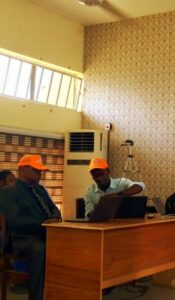
Also Speaking During the event the Chief Medical Director of Gombe State Specialist Hospital, Dr. Sambo Dawa, highlighted the health and economic benefits of clean hands.
“The importance of hand hygiene cannot be overemphasized. It is fundamental to staying healthy and avoiding unnecessary healthcare costs,” he said.
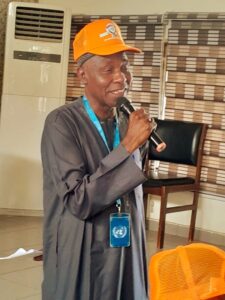
Representatives of the World Health Organization (WHO) and other stakeholders praised the efforts of local health institutions in promoting hygiene. Dr. Umar Faruk Ismail of the WHO Gombe Office, and Nurse Khadija Muhammad Yahaya, Focal Person for Disease Prevention and Control at the State Specialist Hospital, commended the Infection Prevention and Control (IPC) teams for organizing the awareness program.
They urged participants to apply the knowledge gained and called on healthcare workers to ensure hand sanitizers are readily available at all duty posts.

In his demonstration, Mr. John Solomon, IPC expert at the State Specialist Hospital, Gombe, educated the public—particularly vendors of perishable goods—on the proper technique of handwashing. He reminded attendees that May 5 is recognized globally by the WHO as World Hand Hygiene Day, an annual reminder of the power of clean hands in saving lives.
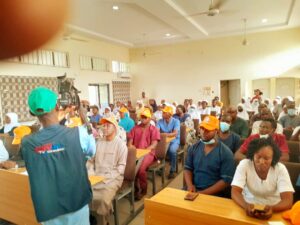
The event featured lectures, practical handwashing sessions, and a hospital-wide awareness campaign. Medical staff from various departments engaged patients and visitors on the importance of proper hand hygiene and distributed educational materials.
World Hand Hygiene Day is part of a global effort led by the World Health Organization to promote effective hand hygiene practices and reduce the spread of infections, particularly in healthcare environments.
-

 Leadership10 months ago
Leadership10 months agoBreaking: African Union Appoints Pantami as Co-Chair of the 4th Industrial Revolution Policy Council
-

 Politics1 year ago
Politics1 year agoFormer Gombe State APC Promoters Forum Chairman Attacked Following Political Commentary
-

 Appointment9 months ago
Appointment9 months agoGombe State Indigene, Appointed New Vice Chancellor (ATBU)
-
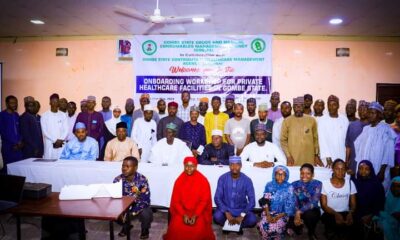
 Health1 year ago
Health1 year agoGombe State Organizes Onboarding Workshop for Private Healthcare Facilities
-
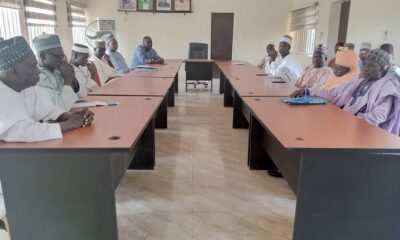
 Water1 year ago
Water1 year agoGombe Government Mobilizes Stakeholders to Combat Illegal Water Connections
-
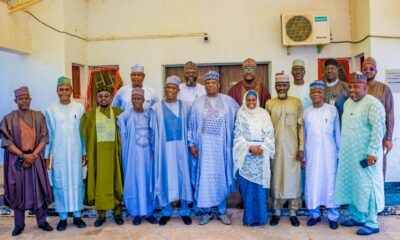
 Politics11 months ago
Politics11 months agoGombe State Inaugurates Human Capital Development Council
-
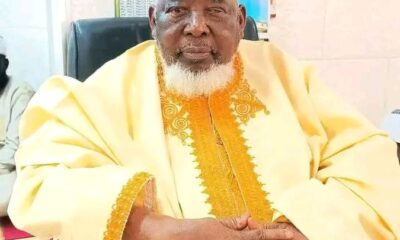
 Death4 months ago
Death4 months agoProminent Nigerian Islamic Scholar, Sheikh Sa’idu Hassan Jingir, Passes Away
-

 Politics1 year ago
Politics1 year agoGombe State Launches Presidential Palliative Program (PPP) to Aid Small Businesses
